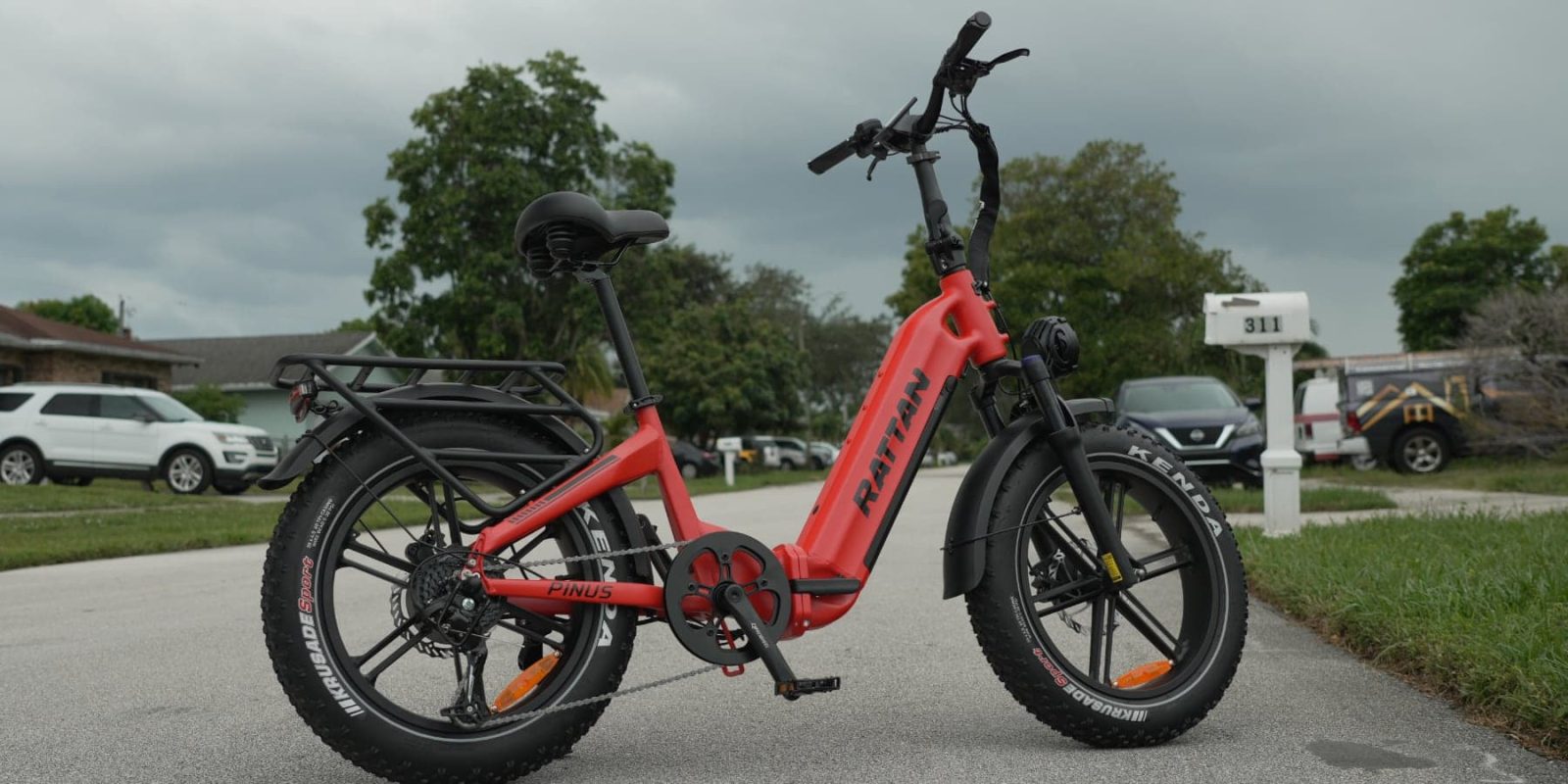
There’s no real beating around the bush here; the Rattan Pinus is one borrowed vowel away from the king of all middle-school humor. But trying to put that aside for just a few moments, the bike itself is actually a really fun ride and pretty darn decent, too. It’s definitely far from a premium-level e-bike, but it’s interesting as a modest budget option!
Sure, funny name aside, there’s actually a lot to like here.
Check out my video review to see it in action. Or if you’re more of a reader, keep scrolling for my written review!
Rattan Pinus Video Review
Rattan Pinus Tech Specs
- Motor: 750W continuous (1,200W peak) rear geared hub motor
- Top speed: 45 km/h (28 mph), though I got a bit higher
- Range: Claimed up to 160 km (100 mi) with second battery
- Battery: 48V with either 20Ah (960 Wh) or 40Ah (1,920 Wh) options (single vs double battery)
- Max load: 181 kg (400 lb)
- Brakes: FastAce hydraulic two-piston disc brakes on 180 mm rotors
- Extras: Torque sensors, LCD display, LED head and tail lights with turn signals, left-side thumb throttle, kickstand, suspension fork, 4″ fat tires, two color options (red and blue), and included fenders & rear rack
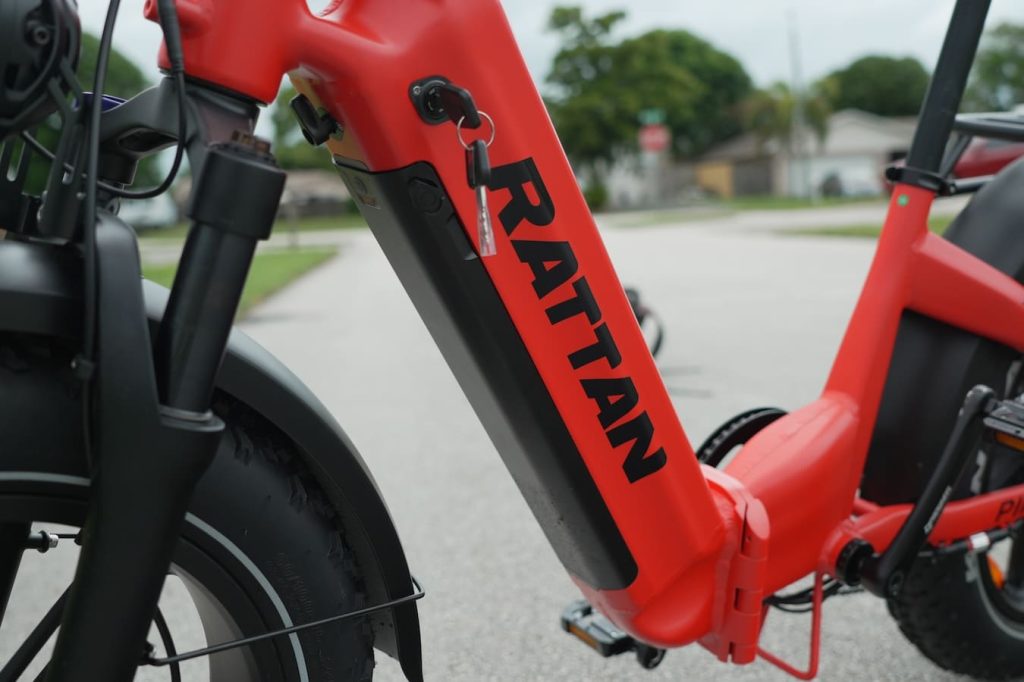
What do you get here?
First of all, the bike is quite powerful and fast.
They claim a top speed of 28 mph (45 km/h), but I blasted past that into the low 30s multiple times on flat ground, so there’s something fishy here. Maybe they just underrate for legal reasons like a late 60s GTO, I’m not sure. But any way you slice it, you’ve got a lot of power and speed at your fingertips.
That’s also 28+ mph on throttle-only, which is either “questionably legal” or downright not allowed in many states, since it doesn’t quite qualify as Class 3 anymore.
Of course, you can always limit the speed in the display settings, if that’s an issue for you. But for most people, knowing you’ve got a little more room to push is a nice addition.
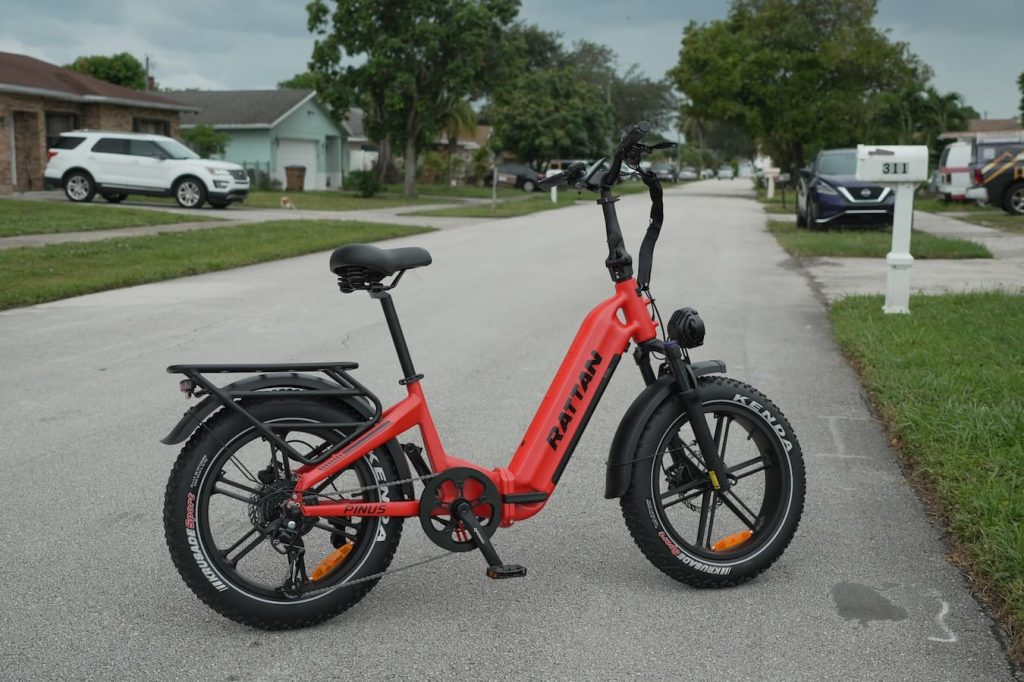
Next, the range is quite good. The base bike comes with a 48V 20Ah battery that offers 960 Wh of capacity. They also say it’s a UL-compliant battery.
The claimed range is 50 miles (80 km), though you’ll of course get less than that if you’re flying fast on throttle. But a 960Wh battery is definitely bigger than you’ll find on most e-bikes, so you’re going to go farther than the average competitor.
For those that want even more range, you can get a second battery and double up for twice the range. The second battery mounts on the top of the down tube, and it’s not as nicely hidden as the internal battery, but if you really want 100 miles of theoretical range, getting the Pinus extension is your only option.
Buying that second battery bumps the price up a good bit though. The base model’s $1,699 price tag jumps up to US $2,178 with the double battery option, which is nearly a $500 premium. Ouch.
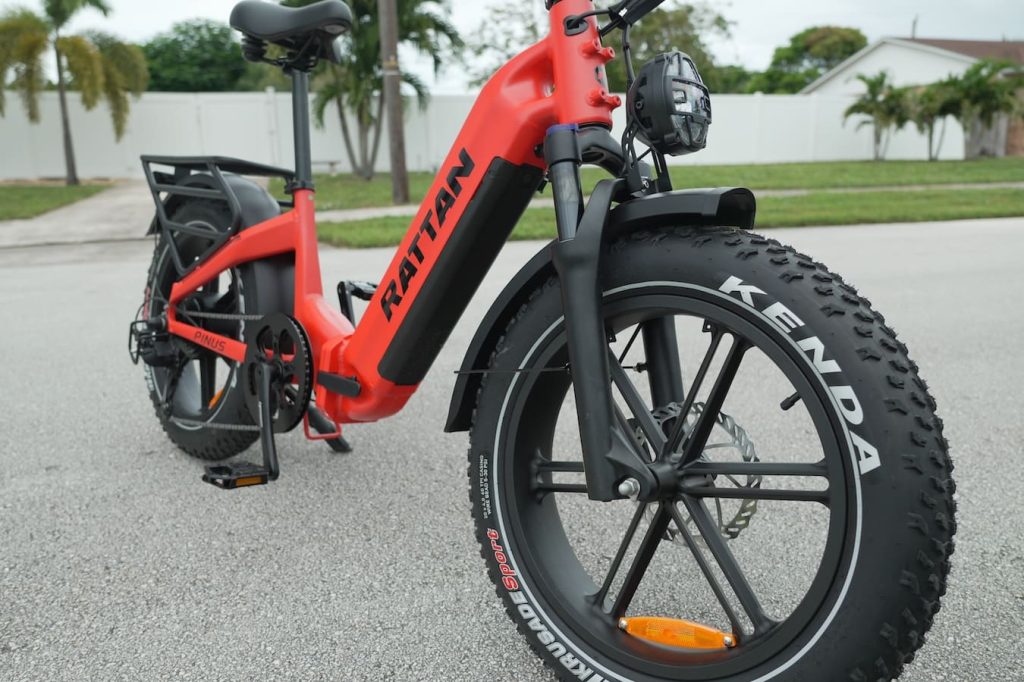
The rest of the components around the bike are a mix of decent and good. The 8-speed SunRace derailleur? Decent.
The hydraulic disc brakes? Good.
The plastic fenders? Decent.
The LED lighting with turn signals? Good.
The suspension fork? Decent.
The folding system? Good.
It’s a grab bag of various parts, though the premium component that brings it all home is the torque sensor, giving much better pedal assist than you’d expect from a chunky, fat tire e-bike like this.
To be fair, most people will use the throttle on this e-bike most of the time anyway, but it is still nice to know you’ve got some good pedal assist should you decide to pedal.
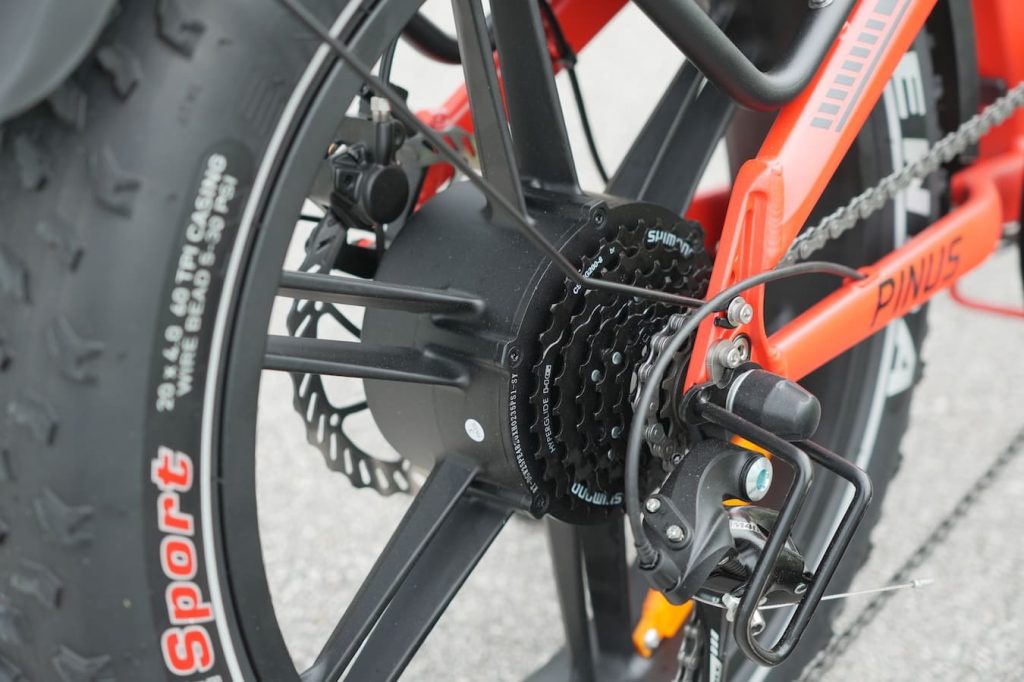
One other nitpicky thing I found was that the cranks felt a bit long for the bike, and I would occasionally have some pedal strike when pedaling around corners that I could normally pedal around on other bikes. I would also more catch my cranks on obstacles when pushing the bike around more often than I normally do with most of my other rides.
Bikes with 20″ wheels sometimes have lower bottom brackets to begin with, caused by the lower height of the frame. However, the cranks are usually sized accordingly to prevent this from being an issue. I think the Pinus could have benefited from the cranks being a few millimeters shorter, but it doesn’t really affect the usability of the bike, and the longer cranks are nicer for actual pedaling.
Some e-bikes, like SUPER73s for example, can have comically short cranks that result in a funny feeling while pedaling, so a bit of a longer crank is generally better, as long as you remember to splay your pedals forward and backward in the turns, as is good practice on any bike.


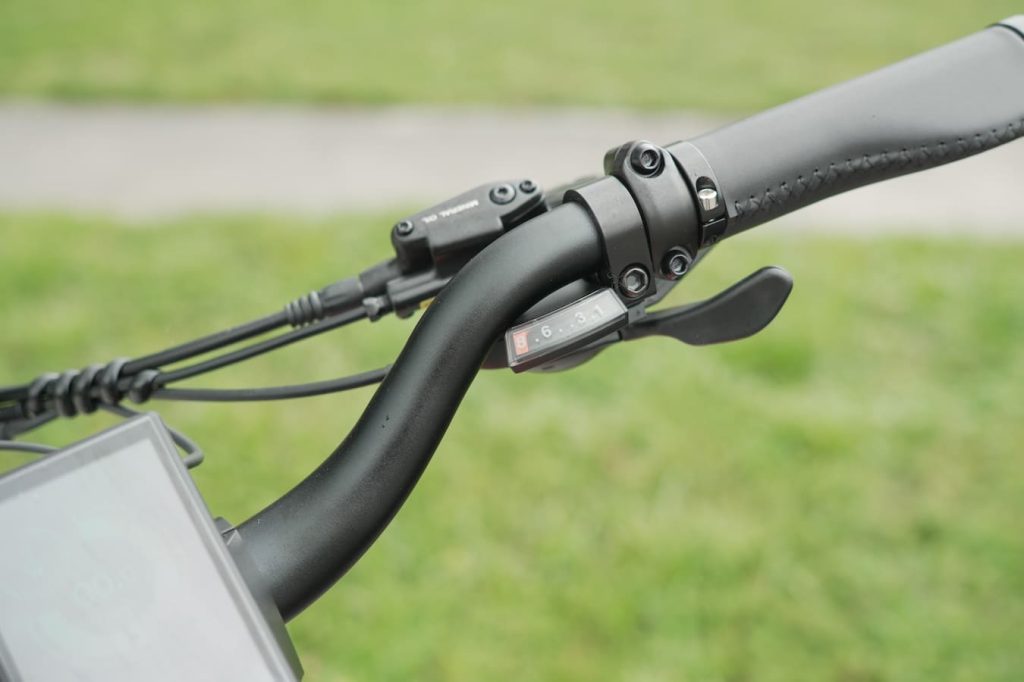

Ultimately, the Rattan Pinus isn’t that different from many other 20″ wheel folding fat tire electric bikes out there. Sure, it’s got a funny name, but at the end of the day, it’s still your basic high-power, high-speed, moderate-quality runabout.
There are lots of options in that crowded market, but the Pinus does make a compelling case. I’d have loved to see this come in a bit cheaper than $1,699, and then I’d be more gung-ho about recommending it. As it stands now, I definitely enjoy the bike, and I’d gladly let my friends ride my Pinus any time they wanted. It’s a solid option, but it’s not that different from a lot of other e-bikes out there.
Perhaps that few extra hundred bucks is worth all the jokes to some people, though.
FTC: We use income earning auto affiliate links. More.







